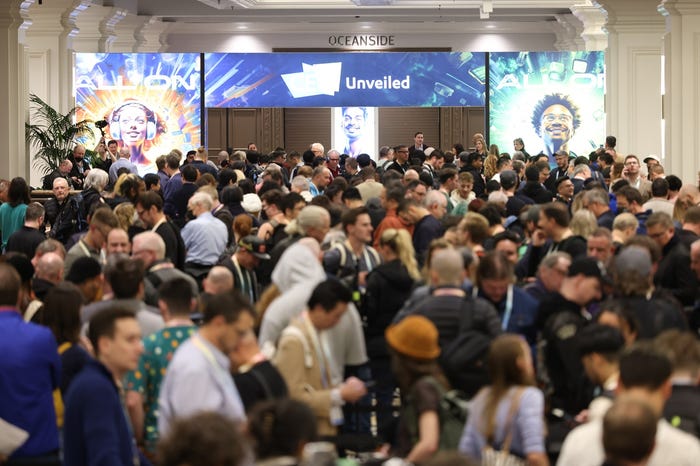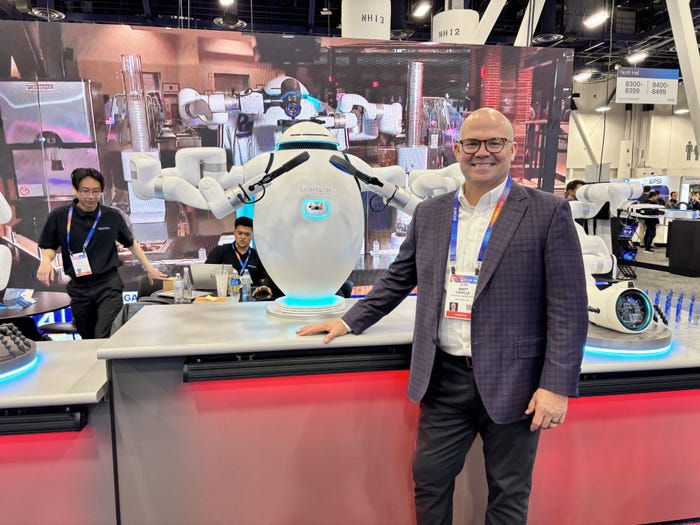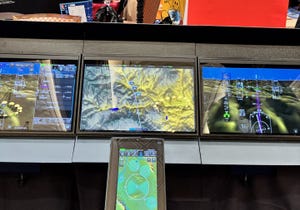Could the IoT Be the Savior of the Hardware Industry?
It is crucial that companies hardware companies rethink their business models, said Draper Labs’ CEO at Sensors Expo, who has also had management stints at Google and DARPA.
June 23, 2016

Imagine you walk into a store to buy a new smartphone. The salesperson tells you: ‘if you purchase this device, you won’t be able to change out the software or the apps.’
“There is no way you are going to buy a device like that,” explained Kaigham J. Gabriel, Ph.D., president and CEO of Draper Laboratory in a keynote address at Sensors Expo in San Jose on June 22.
Why the Blackbox Approach to Hardware 'Sucks'
But that scenario is what hardware makers put up with all of the time. Products like sensors, displays, cameras, microchips, and power amplifiers have all become commoditized. And when a consumer buys a new mobile device or a computer, they are stuck with that hardware configuration until they upgrade the device. It is like a black box for most people.
It is time to start rethinking this approach as the IoT industry begins to gain strength, Gabriel said. “We have an opportunity with the Internet of things not to let this big industry get away from us in the same way that mobile devices did.”
Hardware makers should strive to get closer to users, Gabriel recommended. When looking at the tech companies that have the highest market caps—Apple, Google (Alphabet), Microsoft, Amazon, and Facebook—have all managed to make their products and service indispensable for consumers. (See the chart at the bottom of this article.) Meanwhile, the fate of hardware makers depends on which components a company like Apple decides to use in its next products. There are dozen—two dozen companies at most—that are deciding the fate of most hardware companies. “Are we OK with letting them do that?” Gabriel asked. “I submit that that sucks.”
Comparing the market caps of companies like Apple, Alphabet, and Microsoft with those of leading hardware companies makes it clear just how profitable this arrangement has been for the former. The market cap of Apple—$525 billion, for instance, is more than three times greater than that of Intel’s $152 billion and several times larger than that of Qualcomm or Texas Instruments. And yet many of the capabilities of an Apple, Alphabet, or Microsoft are based on technology made by hardware companies.
“In fact, this is as much a business model challenge as it is a technology challenge,” Gabriel said. “If we continue to have the same business model, my concern is that we will see continuing consolidation and commoditization of our products and companies. It is a race to see who can create a slightly better version of a different sensor and get someone to buy it and design it into a product.”
It doesn’t have to be this way. Companies that make sensors, for instance can offer “more than a feature,” Gabriel explained. Their technology can “be the discriminator for devices.”
An Example in Google's Ara
Look at Google’s Ara, which brings app-like hardware modularity to smartphones. “The fundamental premise at Ara is that nothing is fixed,” Gabriel said. A user can change out the camera, the microphone, speakers, sensors, the display, and other components. “The only thing that is fixed is an endoskeleton, which has many slots for custom modules.”
This model could hold promise for hardware companies seeking to gain a foothold in the IoT market, Gabriel said. “Here is the interesting thing: by opening up the black box, you have created the hardware equivalent to the apps ecosystem.”
With this approach, big system integrators don’t have to foresee what is the ultimate device that hundreds of millions of people will buy. “You let people customize the hardware the same way they are customizing their apps and software,” Gabriel said. “With apps, you can change your mind. You can buy something, use it for an hour, throw it away, get another one. People are constantly looking for things that are happening with apps.”
This approach, however, does have a bit of a chicken and egg problem. Apps have succeeded because companies like Android and Apple have helped foster the app ecosystem. Similarly, it is not enough to create a modular phone. “Google has launched a number of different activities to get companies and individuals to make custom modules and provided resources to help integrate them,” he said.
For sensor makers, this represents a huge change. “In general, you don't have to worry about all of the things that would have to happen to get your sensor into the system. You just have to build a module,” Gabriel explained. “You are not going to be selling sensors for dimes, pennies, and nickels. I will take the price of an app for my sensors any day. The $1.50 to $2.00 price range for many apps would be a tremendous margin for sensor companies
“This is the first crack in the monolithic black devices that are mobile devices,” Gabriel said. “This can be the basis for structuring and Internet of Things. No one has to build integrated black boxes for the IoT.”
About the Author
You May Also Like






